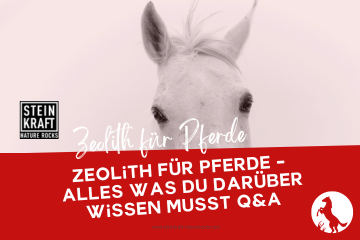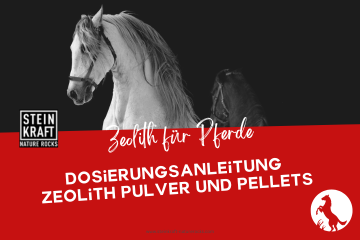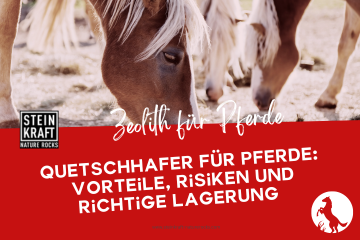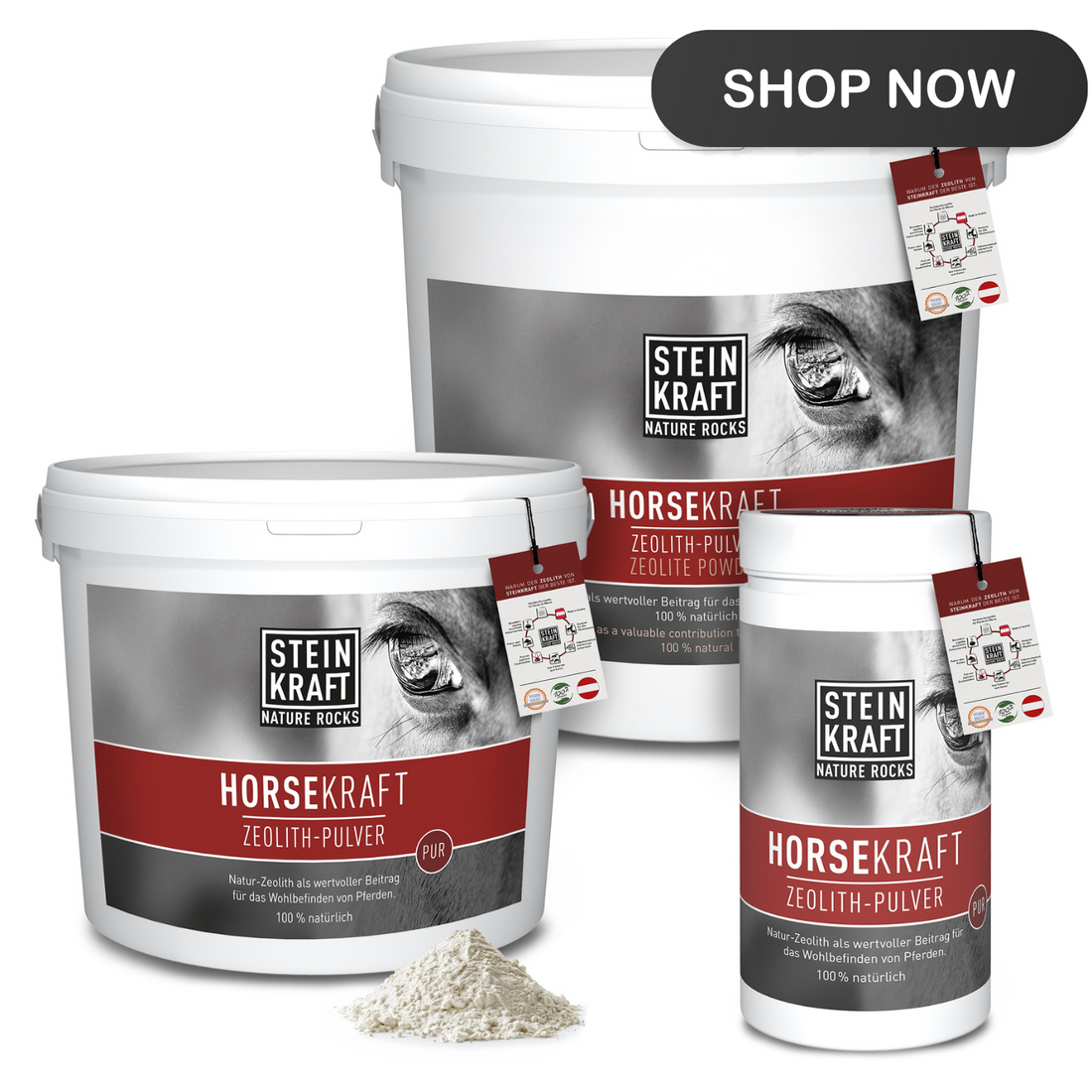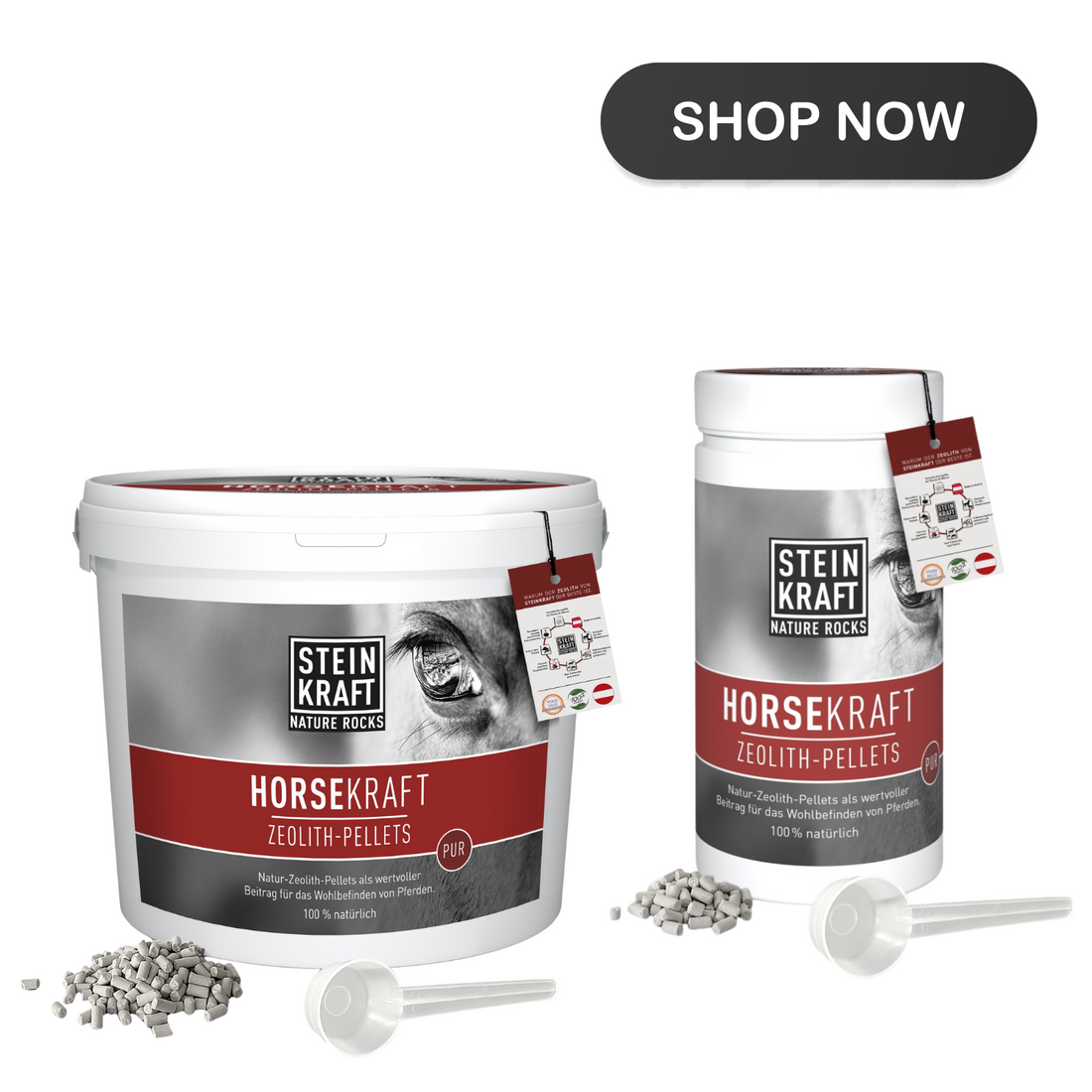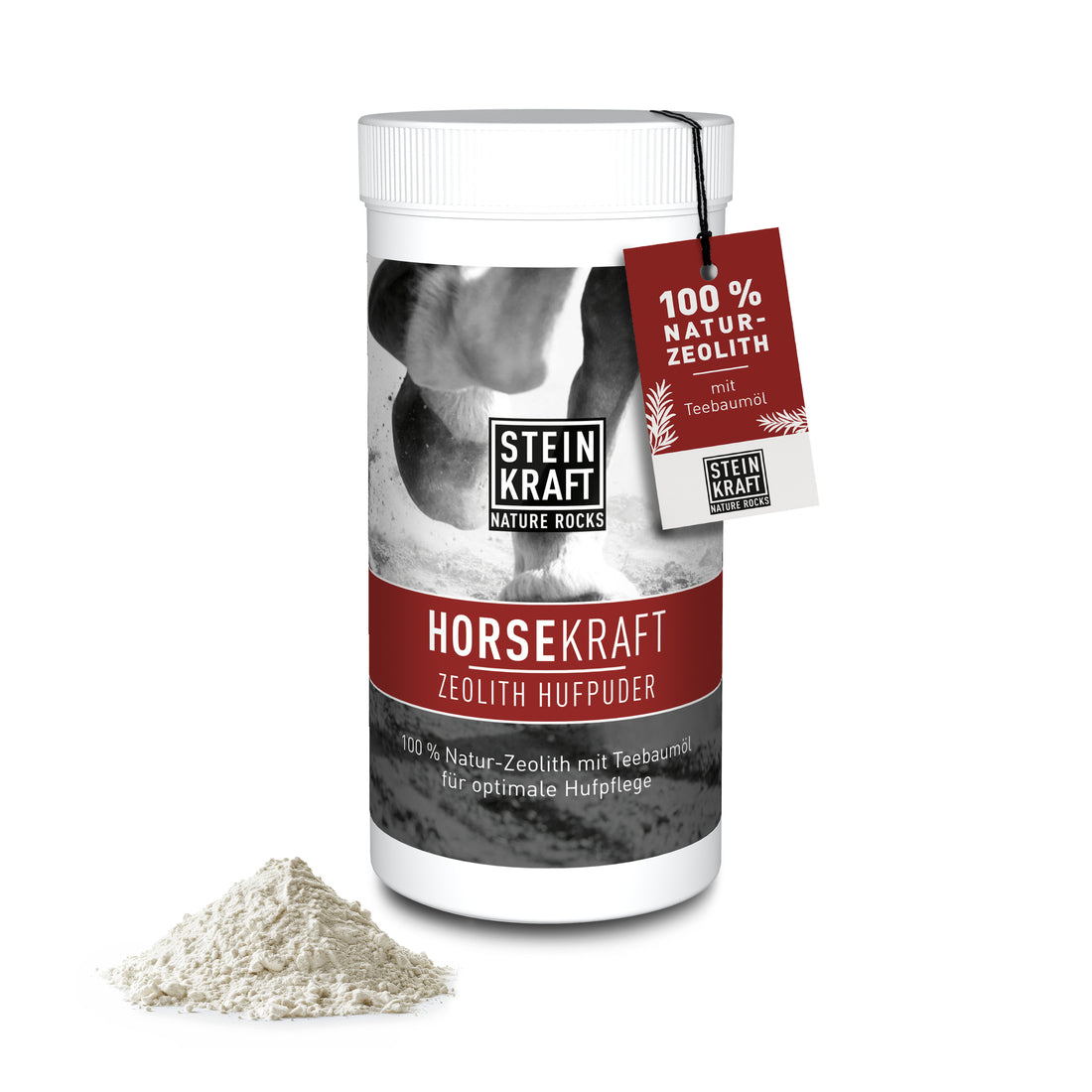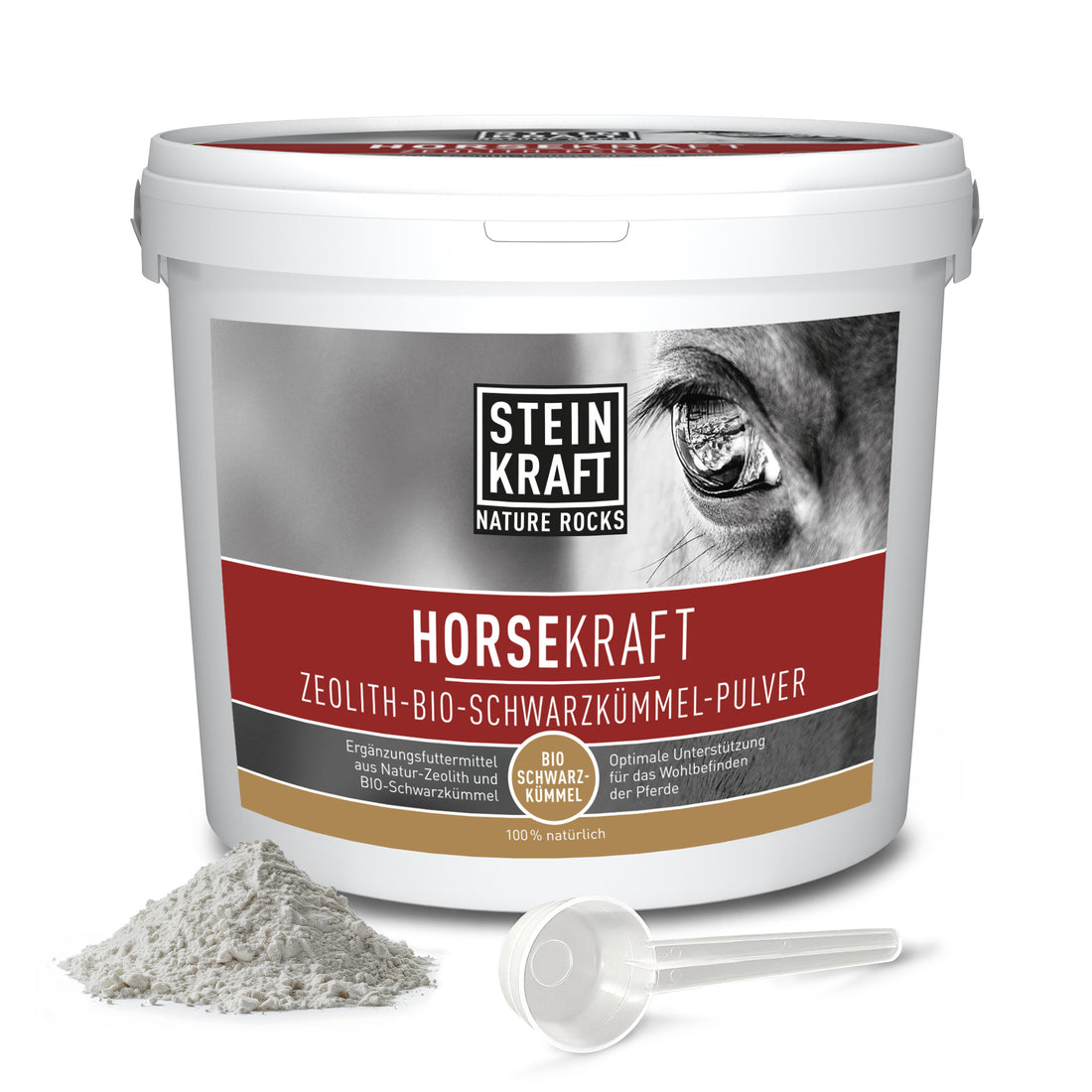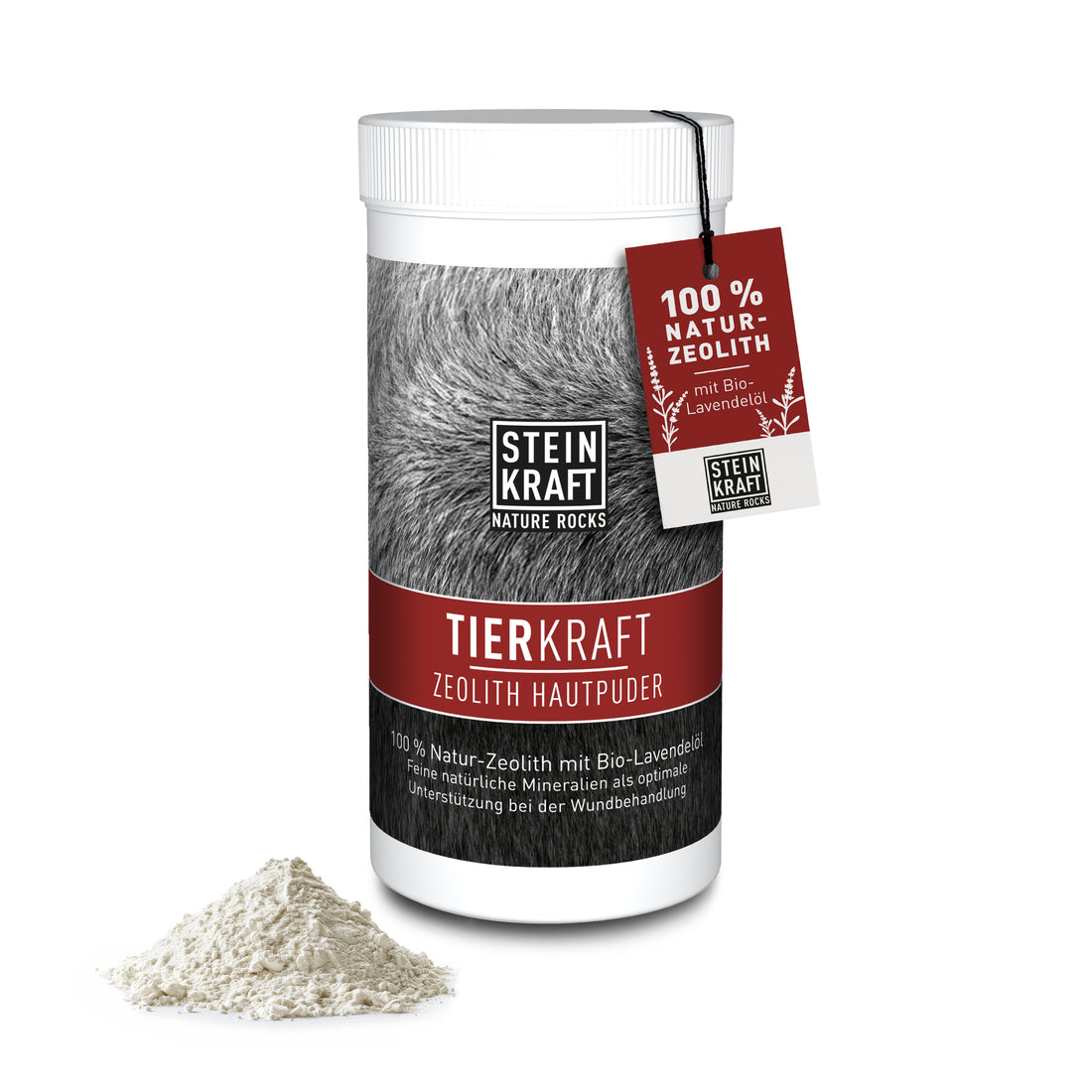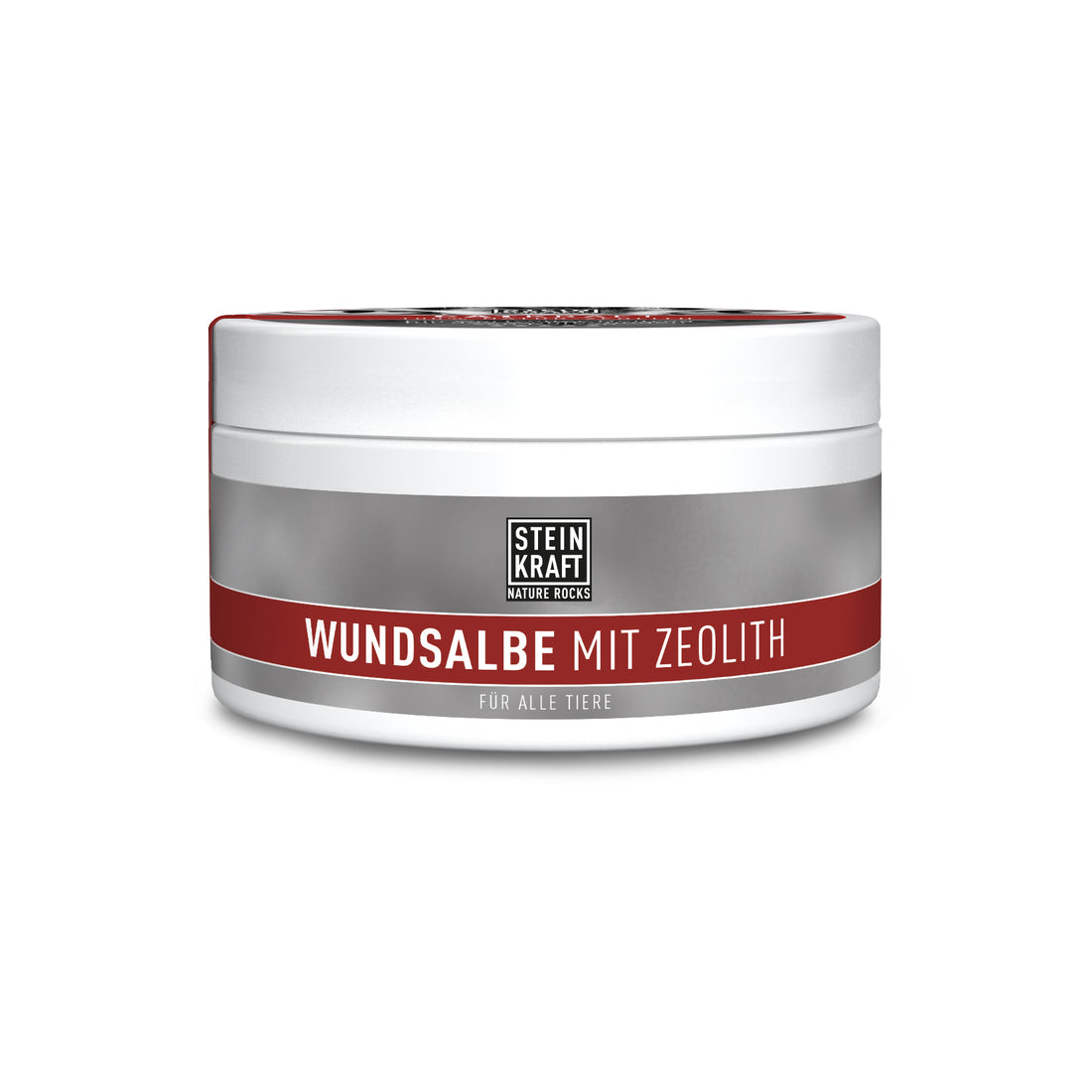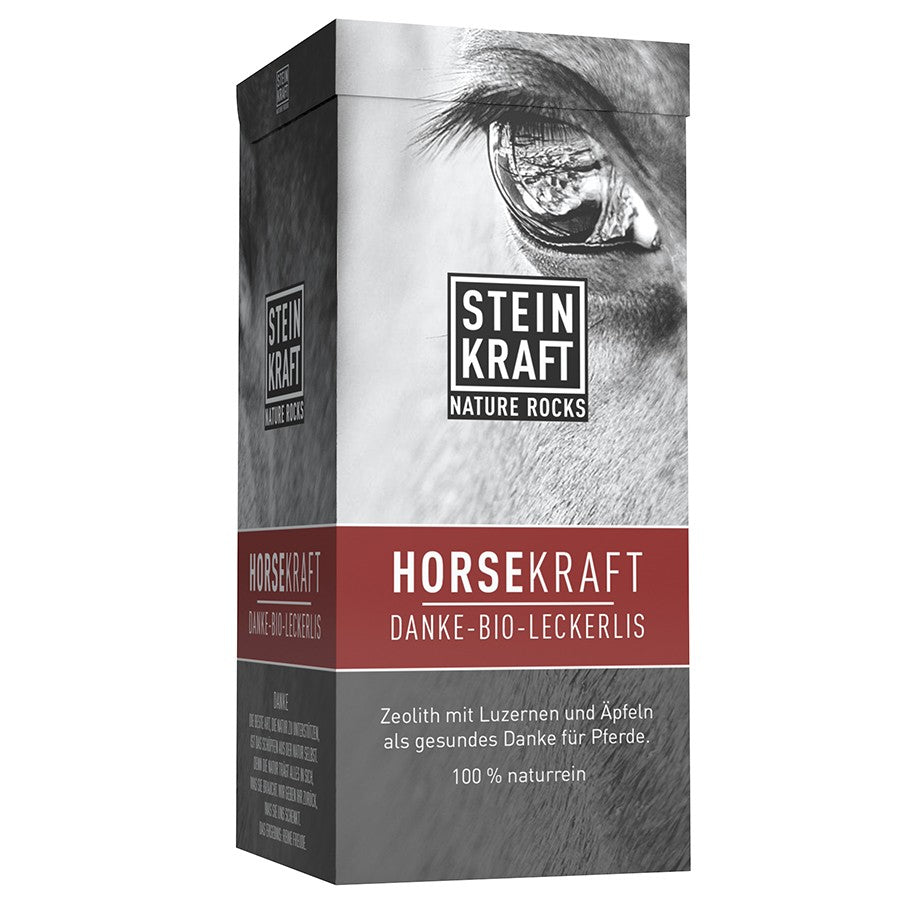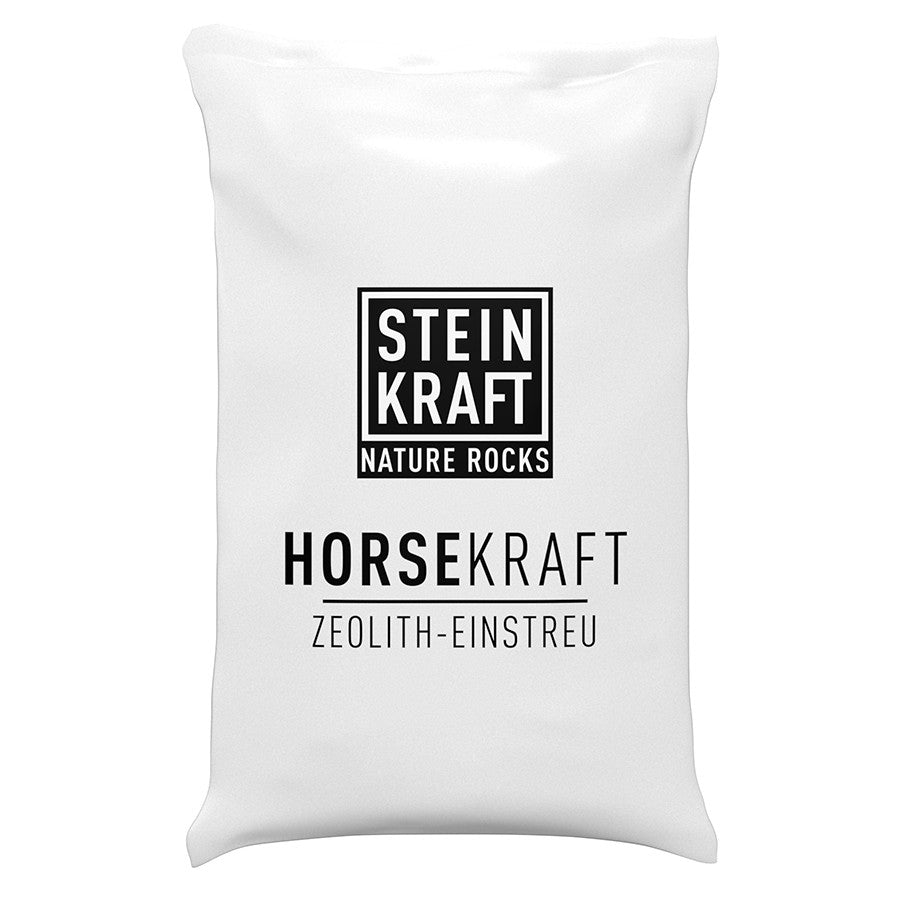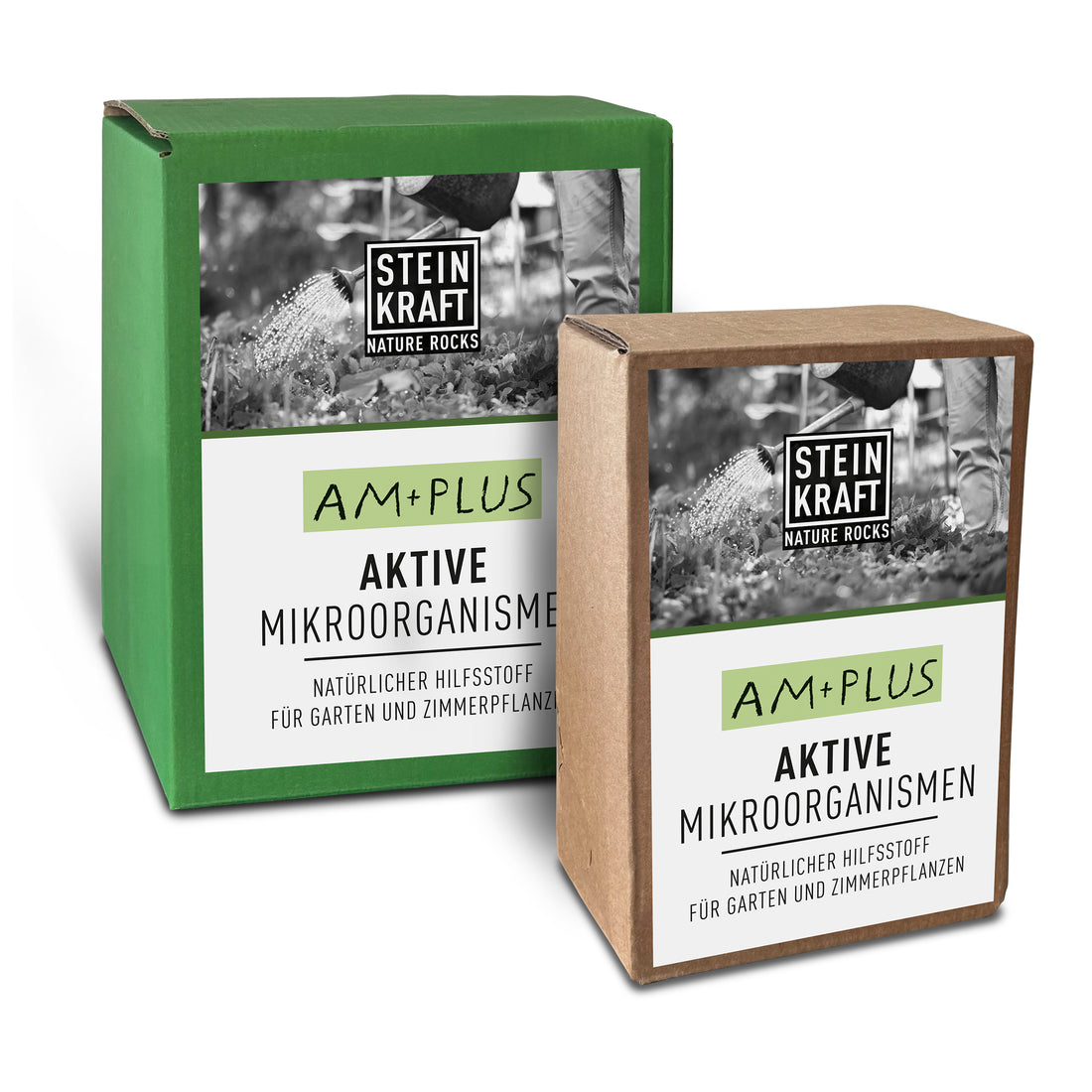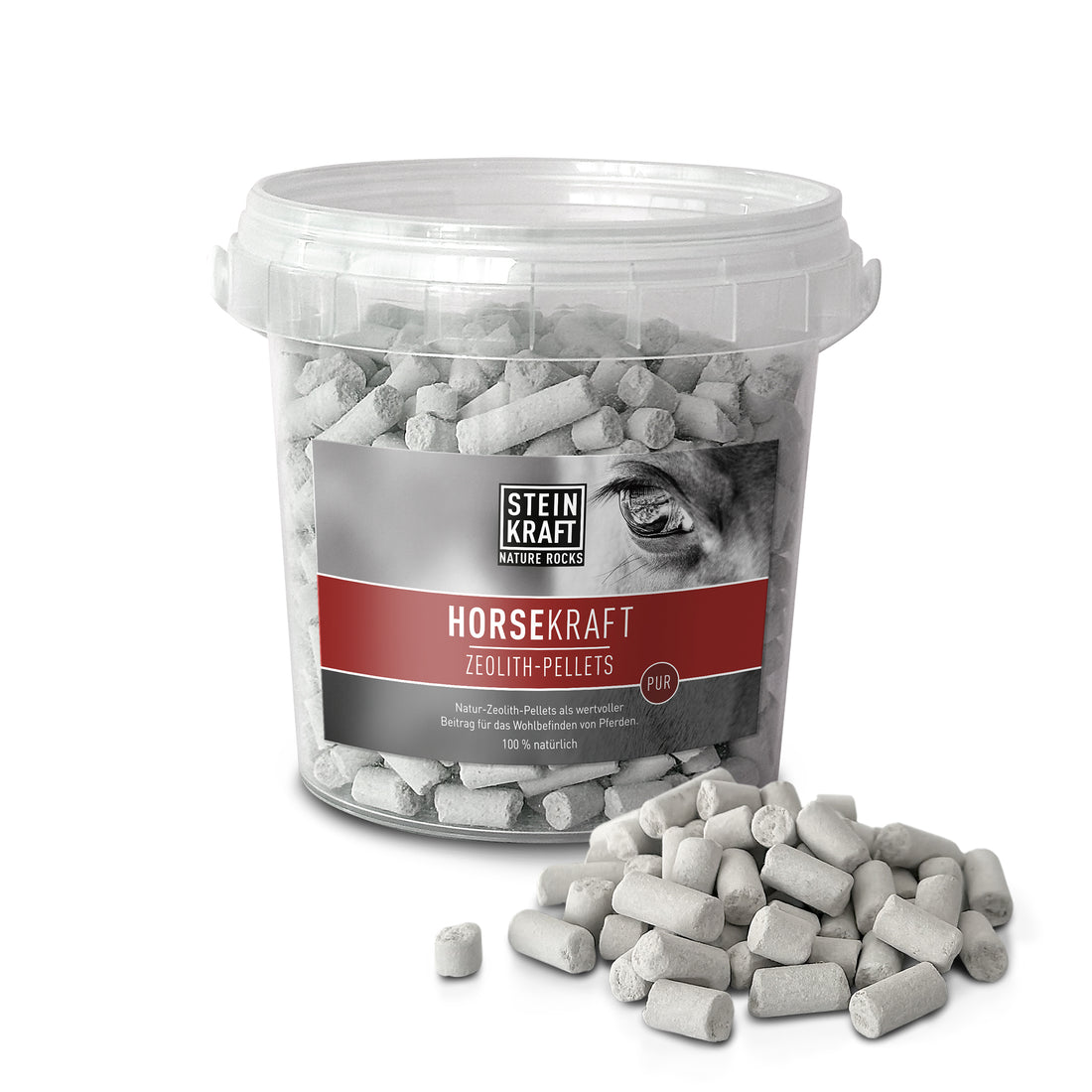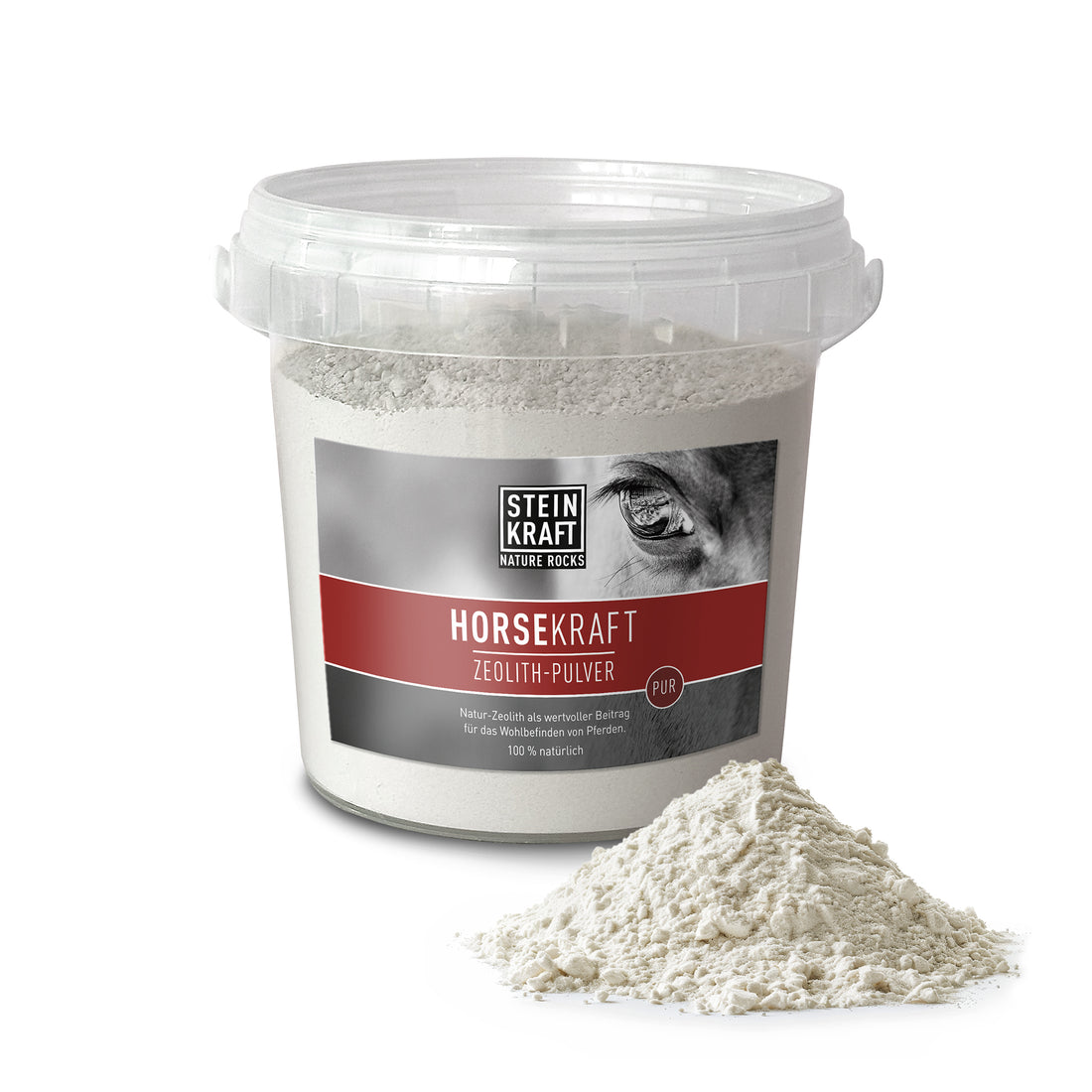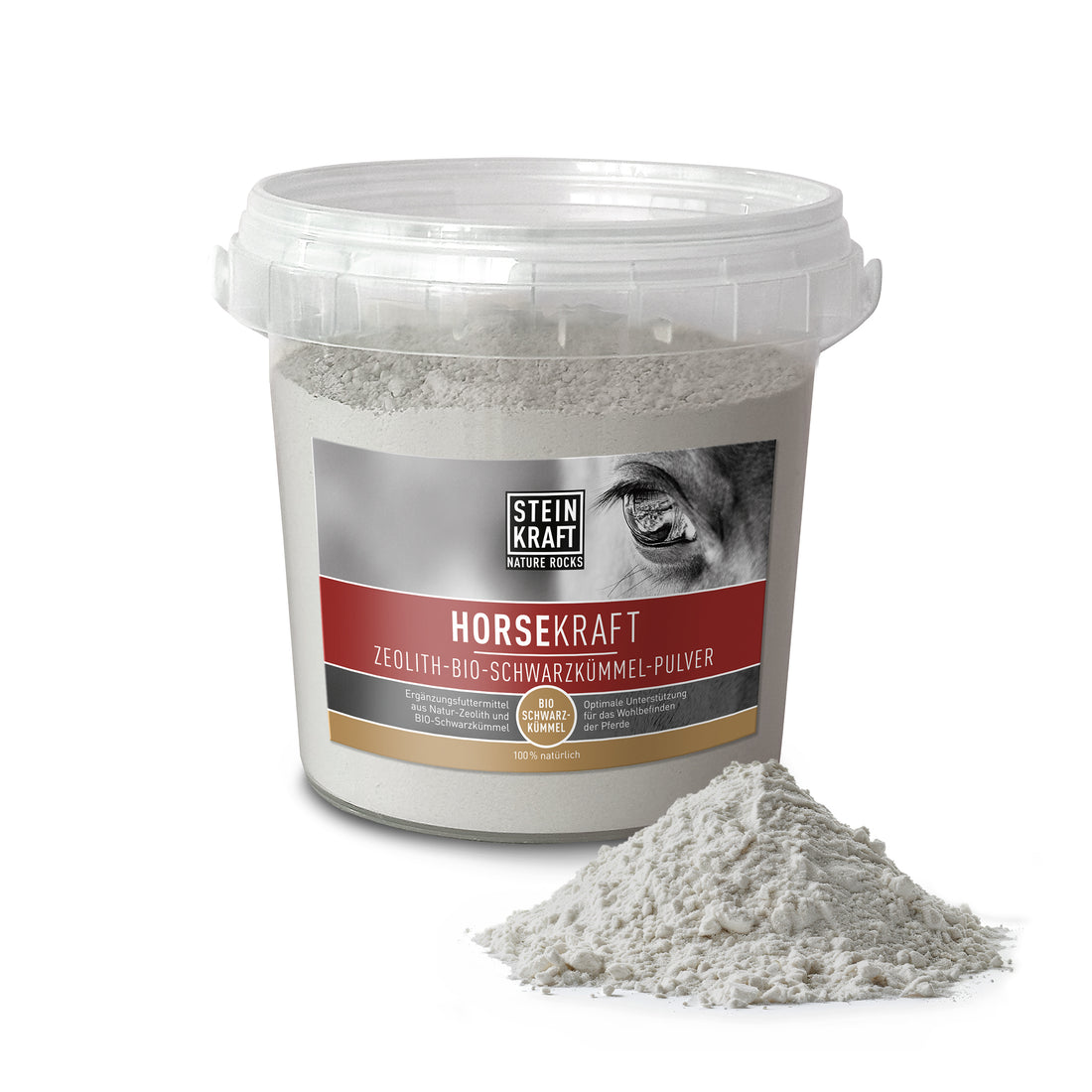Why zeolite for horses : Protection against toxic contamination in feed
Preservatives, herbicides, and insecticides are increasingly used in today's agriculture and feed production. Traces of these substances often end up in our horses' feed. These chemical residues can gradually impair our animals' health by leading to metabolic disorders and other health problems. Unfortunately, the effects of these pollutants are only gradually becoming known, and their detection is often only possible through specialized laboratory tests.
Horse feed can contain various harmful substances that can affect the health and well-being of horses.
Contaminants that can be found in horse feed:

1. Mycotoxins
These are molds that can grow on grain, hay, straw and other feedstuffs, especially under humid storage conditions.
Effects: Liver and kidney damage, immune deficiency, metabolic disorders, reproductive problems.
What exactly are mycotoxins?
Mycotoxins are toxic chemical compounds produced by certain molds. These fungi can grow on various agricultural products, especially when improperly stored or under humid conditions. Mycotoxins are of particular concern in agriculture and animal husbandry, as they can be found in feedstuffs such as grain, hay, and oats.
Ingestion of mycotoxins can cause health problems in both humans and animals. In horses, mycotoxins can have a number of adverse effects, including:
- Metabolic disorders: Mycotoxins can disrupt normal metabolic processes and lead to a variety of health problems.
- Liver and kidney damage: These organs are often the main targets of toxins because they are responsible for detoxification and elimination of harmful substances.
- Immunodeficiency: Mycotoxins can weaken the immune system and increase susceptibility to infections and other diseases.
- Reproductive disorders: In some cases, mycotoxins can also impair reproductive ability.
2. Aflatoxins
These are certain molds, especially Aspergillus spp.
Effects: Highly carcinogenic, liver damaging, immunosuppression, growth retardation.
3. Pesticides
Origin: Chemicals used in agriculture to control weeds (herbicides), insects (insecticides) and fungi (fungicides).
Effects: Chronic poisoning, nerve damage, hormonal imbalance, increased risk of cancer.
4. Heavy metals
Origin: Environmental pollution, contaminated water, contaminated soil.
Examples: lead, mercury, cadmium, arsenic.
Effects: kidney damage, neurological problems, poisoning, reduced performance.
5. Nitrates and nitrites
Origin: Over-fertilization of pastures, contaminated groundwater.
Effects: Impairment of oxygen transport in the blood, nitrite poisoning (methemoglobinemia), digestive disorders.

6. Antibiotics and hormones from manure
Origin: Manure from conventional livestock farming, which contains antibiotic and hormone residues, is spread on pastures. These residues remain on the plants and in the soil, particularly when applied with trailing hoses.
Impact: The residues can re-enter the food chain via feed when the hay or grass is harvested, or be ingested directly by the horses on pasture. This can lead to antibiotic resistance, hormonal disruption, and other health problems.
7. Polychlorinated Biphenyls (PCBs)
Origin: Industrial contaminants that are released into the environment and can end up in animal feed.
Effects: Liver and skin problems, immune and hormonal disorders, increased risk of cancer.
8. Dioxins
Origin: By-products of industrial processes that enter the environment and can accumulate in animal feed.
Effects: Cancer, developmental disorders, hormonal problems, immune disorders.
9. Preservatives
Origin: Additives in processed feed intended to extend its shelf life.
Effects: Allergic reactions, liver and kidney damage, hormonal imbalance.
These pollutants can enter horse feed in various ways, whether through contaminated raw materials, environmental pollution, or the use of chemicals and manure on pastures. Especially when manure is spread with drag hoses, antibiotic and hormone residues can remain on the plants, which are later harvested and fed to the animals, or are ingested directly by the horses in the pasture.
It is therefore crucial to carefully monitor feed quality and take measures such as the use of zeolite, which can help bind these contaminants in the feed and eliminate them from the horses' bodies to protect their health.
But what can we do as responsible horse owners to protect our animals from these poisons?
How can we protect our horses from these poisons?
Zeolite is a natural protective shield
This is where zeolite comes in. Zeolite is a naturally occurring mineral whose special structure enables it to bind harmful substances and expel them from the horse's body . It acts as a natural filter in the digestive tract and can help minimize the harmful effects of preservatives, pesticides, and other undesirable substances. Zeolite therefore not only supports detoxification but also helps relieve the horse's metabolism and promote overall health.
Zeolite binds mycotoxins and aflatoxins
Another significant benefit of zeolite is its ability to bind mycotoxins and aflatoxins. These mold toxins can easily form in feedstuffs such as hay and oats, especially if they are not stored properly. Mycotoxins and aflatoxins are highly toxic and can cause serious health problems in horses, including liver and kidney damage and immune deficiency. Zeolite can effectively bind these harmful toxins before they cause damage in the horse's body, thus helping to reduce the risk of mold poisoning.
How zeolite combats pollutants in horse feed
Contaminants such as herbicides, insecticides , and mold toxins are unfortunately not uncommon in feed. They can enter horse feed via treated pastures, chemically contaminated water, contaminated roughage, or improperly stored crushed oats . Zeolite can bind these substances before they enter the horse's bloodstream, thus reducing the toxic load in the body. This is especially important for horses that are already sensitive to certain feeds or are prone to metabolic problems.
A healthy gut for a healthy horse
In addition to binding pollutants, zeolite also has a positive effect on digestion. It can neutralize excess acids , stabilize the intestinal flora, and thus improve nutrient absorption. A healthy gut is crucial for your horse's overall health and helps strengthen the immune system.
Why should you include zeolite in your diet?
Given the increasing contamination of our feed with various contaminants, including mycotoxins and aflatoxins, it is more important than ever to pay attention to the health of our horses. Zeolite offers a natural, effective way to reduce these contaminations and protect your horse from their negative effects. It not only supports detoxification and metabolism, but also contributes to a shiny coat, a strong immune system, and balanced well-being.
Conclusion
The risks posed by toxic contamination in feed should not be underestimated. By incorporating zeolite into your horse's diet, you can make a decisive contribution to its health and longevity. Protect your horse with the power of nature and rely on zeolite to ensure the best possible care.






